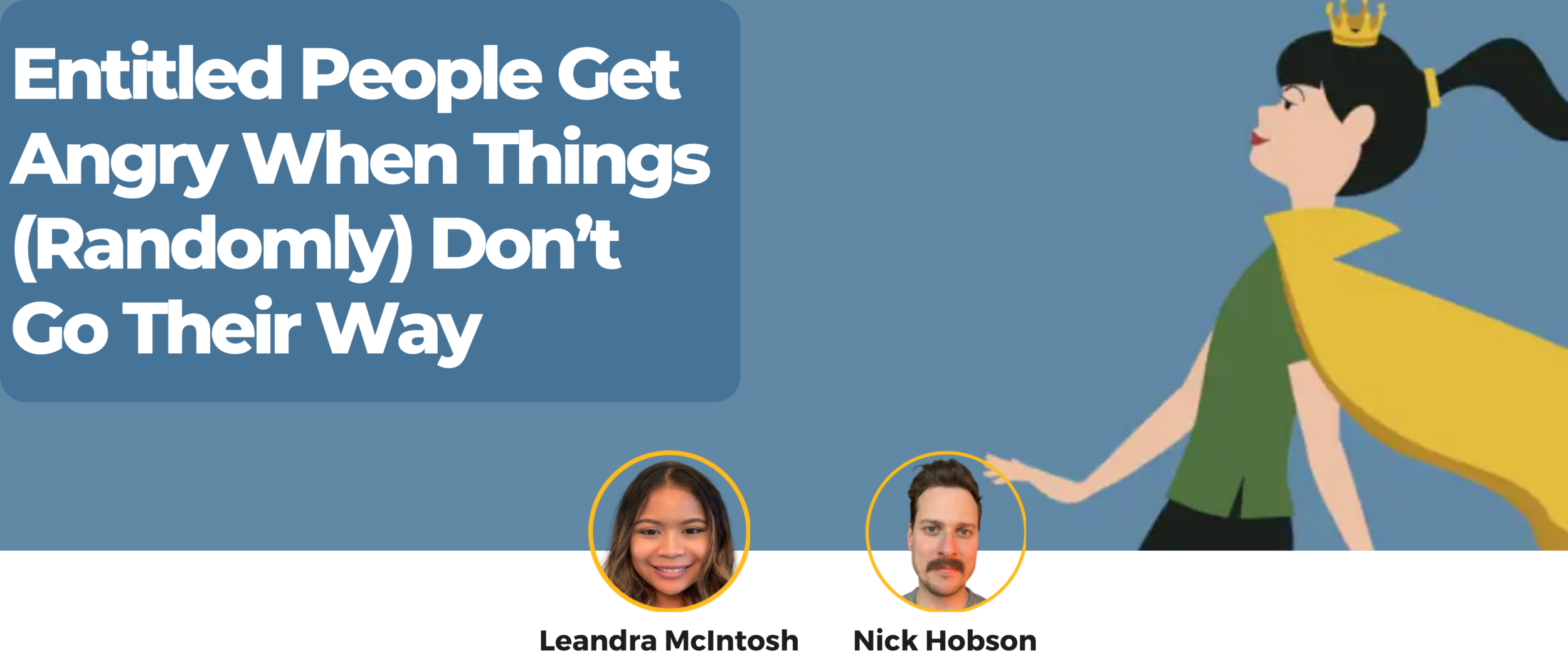A study published in Personality and Individual Differences proposes that individuals who are more entitled are more likely to get angry after experiencing bad luck.
Anger is considered a moral emotion that often arises when people feel they’ve been treated unfairly by someone else. Of course, sometimes bad things happen by accident or chance, and there isn’t anyone to blame. When bad luck arises, people typically don’t respond with the same level of anger as they would if they experienced an injustice caused by another person.
However, psychological entitlement can affect how people respond to bad luck. Psychological entitlement is defined as the belief that one is more deserving of positive outcomes than others, regardless of merit. Research has linked psychological entitlement to lower relationship satisfaction, lower life satisfaction and increased anger.
Since individuals higher in psychological entitlement expect good outcomes, even in chance circumstances, they are likely to perceive bad luck as a form of injustice; a personal slight against them. This led the researchers to hypothesize that individuals higher in the trait-stlye of psychological entitlement would be more to show anger in response to bad luck.
The researchers performed three experiments to test their hypothesis. In the first experiment, they recruited 200 participants and assigned them to complete a boring processing-accuracy task instead of a fun humor-perception task.
However, participants were told that the assignment was random, in order to induce the feeling of bad luck. Participants were also asked to report the kind of luck they expected to have and their perceptions of injustice after experiencing bad luck.
As predicted, the researchers found that participants higher in psychological entitlement felt angrier after experiencing bad luck. They also expected better luck and perceived it as more of an injustice when they had bad luck.
In the second experiment, 400 participants were asked to write about a time (a) they had bad luck, and nobody was to blame, or (b) they were treated unfairly, and someone was to blame. Participants also reported their perceptions of injustice and emotions they felt regarding the situation.
The results of this experiment showed that all the participants were similarly angry after recalling an unfair situation where someone was to blame. Conversely, for unfair situations where no one was to blame, those low in psychological entitlement expressed lower levels of anger. This is consistent with prior research.
However, in support of the hypothesis, those higher in psychological entitlement reported a higher level of anger in response to unfair treatment where nobody was at fault. This suggests that entitled people react to bad luck as if it were an injustice caused by a person.
In the final experiment, 100 undergraduate students were presented with a bad luck scenario where their flight was cancelled, and another passenger was given the last ticket to a flight headed in the same direction as their cancelled flight.
They were also presented with a second scenario which was a slightly modified version of the one they just read. In this scenario, the participant was the one who got the last ticket to the alternate flight after their flight was cancelled. In this case, while they experienced good luck, the other passengers experienced bad luck.
The researchers found that individuals higher in psychological entitlement reported increased anger when they were affected by bad luck, but not when someone else was. In addition, as psychological entitlement increased, the amount of reported pity for someone else experiencing bad luck decreased.
In sum, the researchers found that individuals higher in psychological entitlement are more likely to report feeling angry after experiencing, recalling or imagining bad luck, compared to those lower in psychological entitlement. They were also more likely to perceive bad luck as injustice, even when no one was at fault.



